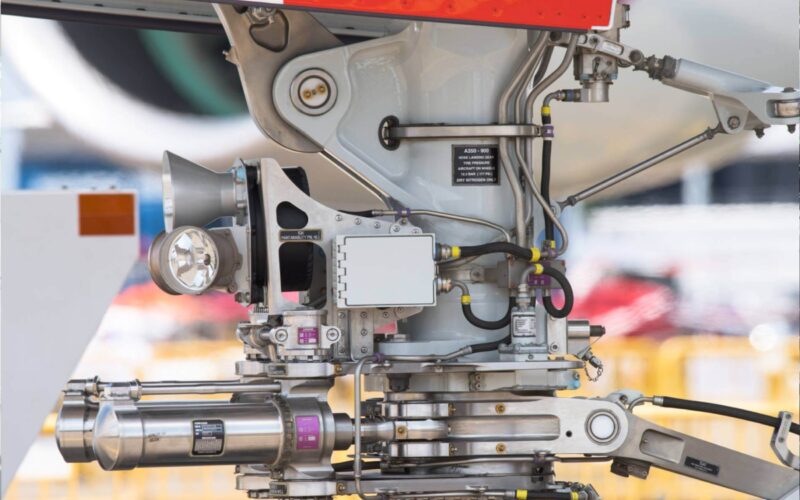The Aerospace industry is currently facing a titanium supply shortage after international sanctions were placed on Russia following its invasion of Ukraine.
But what does this mean for the aerospace industry? AeroTime takes a closer look at the facts surrounding the crisis.
Back in February and March 2022 much debate surrounded just how far the European Union would go when it came to imposing sanctions on Russia. One reason for this, as well as being the main point of criticism expressed by those who opposed the sanctions, was the damage that could be caused to the European economy as a result.
Multiple warnings were issued by industry experts, who called for the sanctions to be well thought-out and prepared because anything less could lead to significant economic damage in the long run. These warnings were often at the forefront of discussion related to subsequent sanctions rolled out by the European Union in the months that followed.
This argument was reiterated by Airbus, Europe’s – and the world’s – largest aerospace manufacturer, with the company expressing concerns about sanctions placed on one Russian company in particular – VSMPO-AVISMA, Russia’s state-run producer of titanium.
In April 2022 Airbus CEO Guillaume Faury said sanctioning the company would damage European aerospace, “while barely hurting Russia’s economy”. Faury repeated the same argument in June amid a new sanctions package imposed on other Russian goods.
It was reportedly this argument that led VSMPO-AVISMA to be removed from the sanctions list, allowing the flow of Russian titanium to continue into Europe.
But how have Western companies become so reliant on Russian titanium?
Slipping into dependency
While the exact figure has not been made public, multiple reports suggest that up to 65% of the titanium used by Airbus currently comes from Russia.
VSMPO-AVISMA is a subsidiary of Rostec, a state-owned conglomerate that also owns most of Russia’s defense companies, and is almost solely responsible for the entirety of Russian titanium.
Considering current events such an arrangement seems objectionable. However, this hasn’t always been the case.
The company dates back to the Soviet era and was the main supplier of titanium to the Soviet army. In the mid-1990s, as Russian military and aerospace manufacturing suffered a decline, it turned to Western buyers.
By the mid-2000s, VSMPO-AVISMA become closely intertwined with the western aviation industry. In 2006 Boeing selected VSMPO-AVISMA as its main titanium supplier and, in 2009, the companies created a joint venture – Ural Boeing Manufacturing. This paved the way for the “Titanium Valley”, an economic zone located in the Ural Mountains that was envisioned as the global capital for titanium manufacturing.
Between 2000 and 2010, Russia’s titanium exports tripled while production companies in the US struggled to keep up with cheap titanium imported from abroad. In 2021 this process reached its peak and the last titanium production facility in North America closed following years of struggle.
During the same period, the EU, which does not include any titanium-producing countries, doubled imports of the metal, a trend that followed the rise of consumption.
Shifts in geopolitics
In 2014 VSMPO-AVISMA provided 40% of Boeing’s, 60% of Airbus’ and 100% of Embraer’s titanium. The Crimean crisis did little to change this. While pledges to decrease Western dependency on Russian supply were made, actual progress was slow.
It was not until the beginning of Russia’s full-scale invasion of Ukraine that the situation was altered.
Boeing announced that it would no longer import Russian titanium almost immediately, stating that it is able to procure enough of the metal elsewhere.
Meanwhile, Airbus did not decrease its imports from Russia. However, according to a statement made by Faury in September 2022, the company is still looking for ways to find other suppliers and gather reserves in case further sanctions are implemented.
There are numerous indications that, like Boeing, the company is earnestly trying to move away from Russian supply.
However, doing so is difficult and creates further problems. While Russia is only the third largest titanium producer in the world, positioned far behind China and Japan by the amount of material produced, when it comes to aerospace-grade titanium, it was the largest supplier, producing half of world’s titanium used in aerospace before 2022.
Through long-lasting partnerships with Airbus and Boeing, VSMPO-AVISMA became an integral part of the global aerospace market, and it comes as no surprise that it is proving difficult for companies to move to other suppliers.
But attempts are being made to mitigate this problem. One solution would be to purchase titanium from China, which usurped Russia’s place as world’s largest producer of titanium decades ago. However, this is still problematic because, although China’s titanium production is increasing day by day, it would simply be shifting the West’s titanium dependency to another country.
Another solution would be to restart domestic manufacturing. In the US and Canada, for example, companies are attempting to do exactly that, while others, such as Tennessee-based IperionX and Quebec-based Rio Tinto, have already begun.
Europe, where sources of titanium are scarce, is in a far more precarious position, and more creative solutions will be needed to address the issue.

